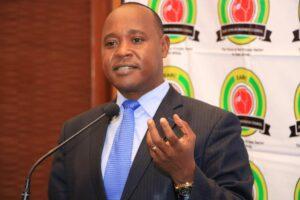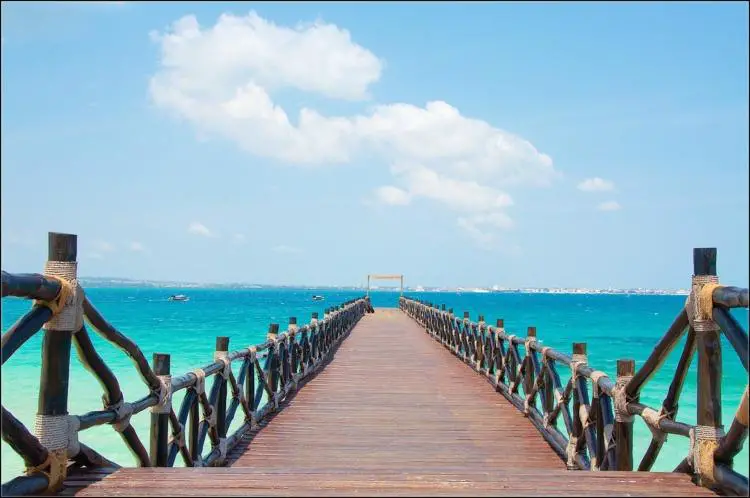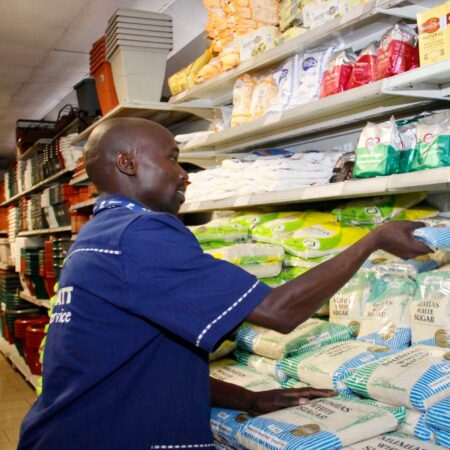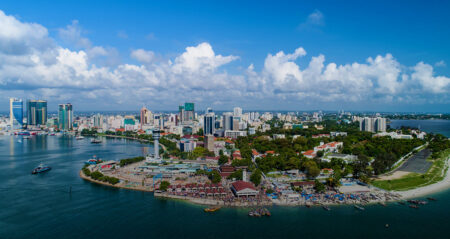- The region had drawn a number of important lessons from the pandemic especially in relation to the economic sectors that were hard hit such as tourism
- EAC citizens should be charged local rates while entering public tourist sites such as national parks and reserves that are distributed across the region
- EAC Partner States should also diversify their tourism products by developing other products
East African Community Partner States lost 92% of revenues in the tourism sector due to the COVID-19 pandemic, with arrivals to the region falling from 6.98 million arrivals before the pandemic to 2.25 million arrivals occasioning the losses.
EAC Secretary General Hon. (Dr.) Peter Mathuki however noted that the region was now open again for business, and urged EAC Partner States governments and other stakeholders to work together to market the region’s tourist attractions and products as part of efforts to ensure speedy recovery for the sector.
“Despite the fact that the pandemic has reversed the gains that we had made in the tourism sector, we are quite confident that through collective and collaborative efforts, we should be able to bounce back to pre-pandemic levels of performance and even do better within a span of less than five years,” said Dr. Mathuki.
“As a region, we have what it takes including iconic and fascinating tourist attractions ranging from pristine white beaches to beautiful snowcapped mountains, rolling savannahs to dense rainforests, rich cultural heritage that span the entire region and unmatched diversity in wildlife species,” added Dr. Mathuki.
At the same time, the Secretary General said that the region had drawn a number of important lessons from the pandemic especially in relation to the economic sectors that were hard hit such as tourism.
“One lesson that stands out and resonates with most destinations around the world is the need to entrench resilience in the tourism sector,” he said, adding that the Community would take a number of steps to enhance recovery in the sector.
The Secretary General was addressing guests, visitors and exhibitors when he presided over the official opening of the 1st EAC Regional Tourism EXPO at the TGT grounds in Arusha, Tanzania. The Expo will run from 9th to 11th October, 2021.
“This EXPO is among the first initiatives that we have embarked on as part of rolling out implementation of the Regional Tourism Recovery Plan that was approved by the EAC Ministers for Tourism and Wildlife Management on 15th July, 2021,” said the Secretary General.
Dr. Mathuki said that the EAC was also planning to undertake a major Regional and Domestic Tourism Campaign in the region.

“This is based on the premise that our intra-regional tourism market is ripe and provides the best backstopping in case of future shocks. As you are all aware, the middle class in Africa has been growing rapidly and it largely comprises of young people who are eager to travel and explore. East Africa should be their first destination. They should take advantage of the preferential rates applicable to EAC citizens,” he said.
Dr. Mathuki disclosed that the EAC Council of Ministers had previously made a decision that the EAC citizens should be charged local rates while entering public tourist sites such as national parks and reserves that are distributed across the region, adding that the decision has been implemented by all Partner States and has been extended to hotels and other tourist accommodation establishments.
Kenya’s imports from Tanzania grow by 75pc in June
The Secretary General urged EAC Partner States to diversify their tourism products by developing other products such as conference tourism, cultural tourism, sports tourism, and hailed the United Republic of Tanzania for launching a Golf Tourism campaign.
“We are also emphasizing development and promotion of multi-destination tourism packages that would encourage visitors to travel to more than one EAC Partner State in a single trip. This will go a long way in supporting the initiative of Branding EAC as a Single Tourism Destination that is also in the pipeline,” he said.
Dr. Mathuki said that the region had commenced capacity building activities targeting the various tourism service providers including hotels, tour operators, travel agencies, tour guides and even local communities.
“The capacity building will focus on critical aspects at this time such as implementing harmonised COVID-19 related tourism guidelines. Soon after the onset of COVID-19, we undertook training of frontline staff on COVID-19 safety measures at all international airports in the EAC Partner States,” he said.
Dr. Mathuki said that the Sectoral Council on Tourism and Wildlife Management also approved Regional Guidelines for Resumption of Services in the Tourism and Hospitality Sector aimed at ensuring that visitors are safe as they travel within the region.
He disclosed that the EAC had developed an EACPass that facilitates the travel industry to get back to normal while keeping people safe in the wake of pandemic.
“The EACPass integrates all EAC Partner States COVID-19 test results and Certificates to ensure safe and seamless travel across the region. Work is ongoing to integrate the EACPass with other international surveillance systems such as the EUPASS. We will be demonstrating how the EACPass works at this EXPO. The EACPass is a step further to the Mobile Laboratories that the EAC has installed at One Stop Border Posts (OSBPs) such as Namanga to facilitate testing and rapid response in line with free movement of goods and services within the region,” said Dr. Mathuki.
How East African businesses are going to lead the AFCTA











